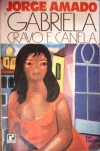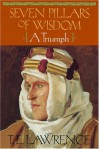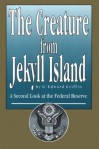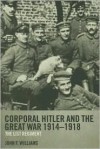Currently reading
ELIZABETH JANE HOWARD - A GIFTED WRITER DESERVING OF WIDER RECOGNITION & RESPECT

Elizabeth Jane Howard (EJH), one of my favorite writers, is someone truly deserving of wider recognition for her extraordinary literary talent. With this memoir, she has shown herself to be unflinchingly honest about herself, her family, friends and acquaintances, as well as life as she came to know it. Indeed, the reason for EJH penning this memoir with the title "Slipstream" is because, as she states plainly to the reader, "I feel as though I have lived most of my life in the slipstream of experience. Often I have had to repeat the same disastrous situation several times before I got the message. ... I do not write this book as a wise, mature, finished person who has learned all the answers, but rather as someone who ... is still trying to change, find things out and do a bit better with them."
EJH was born in 1923, the oldest of 3 and the only daughter in a middle-class family where sons were favored, especially by her mother, with whom she tried all her life to have a close relationship. Her mother, before marrying her father, had had ambitions to be a ballet dancer, having once danced in the corps de ballet of Diaghilev's Ballets Russes. But upon meeting EJH's father, a First World War combat veteran who was ruggedly handsome with an infectious charm and ease with people, she put aside all thoughts of an independent career to fulfill the expected role of wife and mother and all that that entailed for women of her generation.
EJH, as she was growing up, was also expected to accept her allotted slot as a female in a family where modesty, restraint, and self-effacement were fostered and expected to be practiced as a matter-of-course. “I was very well aware that [Robin, her oldest brother] was the favourite – with our first nanny, with the Yorkshire cook who adored him, but above all with our mother. All I can remember feeling about this is a sense of inferiority. I was thin, with thick brown lamentably straight hair and a sallow complexion; my brother was clearly more loveable. His being musical was also much in his favour: both my parents, above any other art, revered music and I had no discernible talent for it.”
EJH was largely privately educated and speaks very candidly of many of the insecurities she had as a child, adolescent, and young adult. It became increasingly clear to me as I read deeper into this memoir, that she was trying so hard to find herself, develop talents as a way of asserting her own identity and finding personal fulfilment, and establish friendships with people she could trust and love. I was deeply moved also by her honesty and her observations of her family. EJH as a child, had a very close relationship with her father, who always treated her with great affection. Then as she entered into adolescence, that relationship became somewhat strained and remote (the reasons for that I leave to the reader of this review to discover for him/herself). EJH and her father would only become closer again when she herself was married to her first husband Peter Scott (the son of the late Arctic explorer Robert Falcon Scott of the ill-fated Antarctic expedition of 1911-12 who was a naval officer who distinguished himself through his Second World War service and later as a celebrated artist, illustrator, and naturalist), with whom she would have her only child, Nicola.
Elizabeth Jane Howard married for the first time in 1942, age 19, had her daughter the following year, and struggled for a time to have careers in acting and modelling. The memoir is studded with photos from various phases of her life and it is easy to see how EJH as a young woman had many men who desired her. Despite her own diffidence and unease about her own appearance, EJH was a very attractive and charming woman. After leaving Peter Scott in 1946 (they divorced 5 years later), she found a job as a publishing editor. Here she began to flourish and develop relationships with a variety of people in the artistic and literary communities. These were the years --- from the late 1940s and well into the 1960s --- in which EJH began to develop her talents as a novelist, book reviewer, and short story writer. She had lovers by the score (not to suggest that EJH was an 'easy woman'; she wasn't; she was a woman who, by own her admission, "was still at the stage when my sense of self rested almost entirely upon how somebody else saw me. I wanted his affection and interest more than anything else in the world."), was briefly married for a second time, travelled fairly widely, and met during the early 1960s at the Cheltenham Literary Festival (which she helped organize) the writer Kingsley Amis, who would later figure prominently (for good and ill) in her life. They married in 1965.
EJH shares with the reader a lot of the ups and downs of her marriage to Amis. She said that his disciplined approach to his writing much impressed her as well as his bonhomie when he was in a light and generous mood. But, as the marriage went on, his drinking grew to excess, and Amis came to resent EJH. As far as I was concerned, the man deserved a good slap from time to time! Anyway, I'm not going to speak any further about that. Read "SLIPSTREAM" and you will marvel at the kind of life Elizabeth Jane Howard was able to establish, through much struggle. She impressed me as a smart, at times shrewd, discerning, fun-loving, and compassionate person.
One more thing I like to say about this memoir that I especially liked was a listing EJH made, between the Preface and the first chapter, in a section entitled 'Cast of Characters' in which she identifies many of the distinguished and famous persons she came to know throughout her life.
"SLIPSTREAM" is a memoir that I will long cherish. I highly recommend it to anyone who loves to read memoirs.
 4
4













